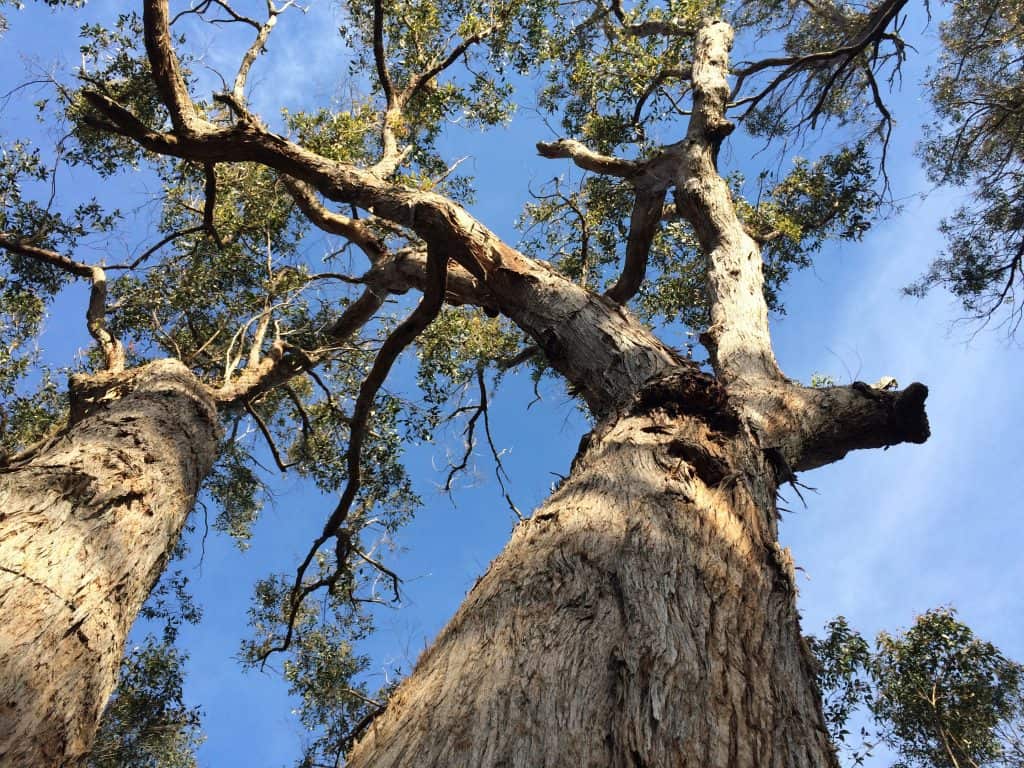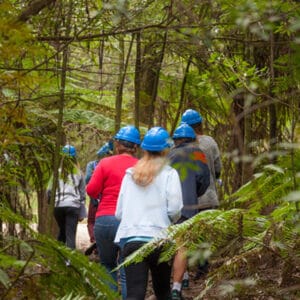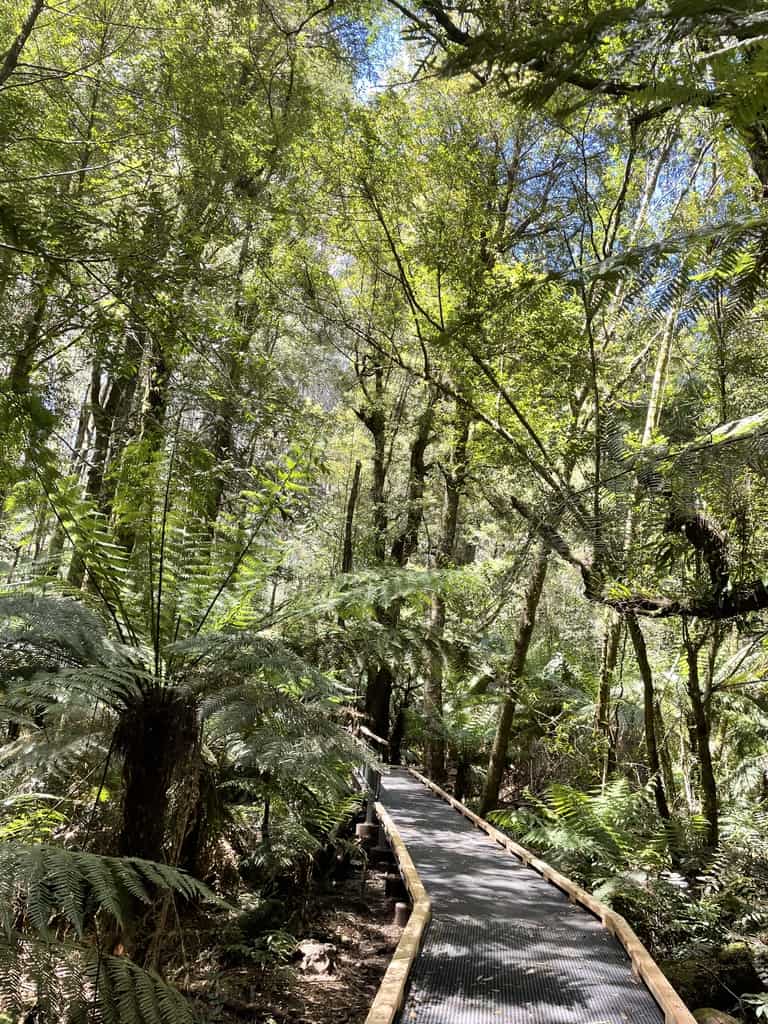Relationships with Forests – VCE Outdoor and Environmental Studies Unit 3
-
Forest
-
Human Impacts
-
Forest Management
-
Relationships



Program Overview
The forested mountains which embrace the city of Melbourne are the setting for giant trees, dramatic geological events, human stories of tragedy and triumph, evolution of unique organisms and regular occurrence of bushfires. They have also been the focus of many court cases in recent years.
Victorian State forests are managed to balance a variety of values and uses. These values and uses include the conservation of flora and fauna, protection of water catchments and water quality, the protection of landscape, archaeological and historic values, and the provision of recreational and educational opportunities.
During your visit to the Toolangi State Forest you will go to a protected Cool Temperate Rainforest, a Mt Ash forest that has regenerated from the 1939 Black Friday bushfires and a clear felled logging coupe. You will investigate how each of these areas are managed and the controversy that has surrounded them. Throughout the program students are encouraged to develop and consider their own views on how Victorian State forests are and have been managed, and options to improve them.
During this fieldtrip you will:
- Explore how First Nations people lived and their relationship with Forests.
- Discover impacts of European colonisation.
- Gain an understanding of contemporary Australians and forest values.
- Explore contemporary political, social and economic views of the forest, and how they affect the way in which Toolangi’s forests are utilized today.
- Discover the court ruling that stopped the logging of native forests in Victoria.
- Be able to make practical observations in order to complete journal entries/reports for Outcome Assessment tasks.
- Explore forest losses, be introduced to Great Forest National Park along with Biodiversity Credits and the Nature Repair Act.
- Investigate the ‘views of nature’ from a variety of perspectives.
- Discover a portion of a forest that sequesters and stores more carbon per hectare than any other forest studied in the world.
- Visit the home of the Leadbeaters Possum.
Explore contemporary political, social and economic views of the forest, and how they affect the way in which Toolangi’s forests are utilized today. Students will be able to make practical observations in order to complete journal entries/reports for Outcome Assessment tasks.
Inclusions and Notes
Equipment supplied by Gould League: Safety helmets worn by all participants; workbook and all tools required for fieldwork data collection.
Equipment needed: A chartered bus (which is required to remain with the group at all times). First aid kit , sun screen, insect repellent and PPE including hand sanitiser to kill viruses, bacteria and other micro organisations.
Please note that our Gould League educators will travel on your bus for the duration of your program time. We ask schools to ensure when booking coaches that 1 one seat is allocated for each group booked as they will provide commentary on the bus to students and guide the bus drivers. Please advise the Bookings Manager if there is no room on the coach for our educators, and travel fee of $0.88 per km will be added to your final invoice. This amount will vary according to the activities undertaken on the day which can vary due to local weather conditions. Maximum travel fee is $40. This covers the cost of one vehicle only as Gould League Educators will carpool.
Student needs to bring: Their own water and lunch, sunscreen, a clipboard, pencil, and a copy of the Gould League workbook (usually sent 14 days prior to excursion so copies can be made for students) to guide the program, bag to take away your rubbish.
Restrictions: This Gould League program is delivered in the Toolangi State Forest, in the North Central Fire District and does not operate on days with a Fire danger rating of Extreme and Catastrophic. On rare occasions, programs may be postponed due to extreme weather predictions involving wind/storms. In both cases, these programs will be rescheduled at the earliest convenience of both parties.
Programs however DO operate during wet/snowy weather. Please contact us to discuss the best timing to optimize your group’s experience and ensure suitable clothing and footwear for the conditions predicted. Plan for wet weather from April-October, and expect temperatures at least 5 degrees colder than suburban Melbourne.
Curriculum Links
AOS 1 Outcome 1 Key Knowledge:
- An overview of Australian outdoor environments before humans, including characteristics of biological isolation, geological stability, and climatic variations.
- Relationships with Australian outdoor environments expressed by specific Indigenous communities before and after European colonisation.
- Relationships with Australian outdoor environments as influenced by:
- the first non-Indigenous settlers’ experience
- increasing population
- industrialisation
- nation building
Key skills
- Explain the characteristics of the Australian environment before humans.
- Describe and analyse the changing relationships with Australian outdoor environments expressed by specific Indigenous communities.
- Describe and analyse the changing relationships with Australian outdoor environments influenced by historical events and associated key social and cultural issues.
- Evaluate the foundation and role of environmental and political movements in changing relationships with outdoor environments.
- Plan for and reflect upon a range of practical sustainable outdoor experiences and analyse relevant information collected during these experiences.
AOS 2 Outcome 2 Key Knowledge:
- Societal relationships with outdoor environments reflected in different forms of conservation, recreation, primary industries, and tourism practice
- The factors influencing societal relationships with outdoor environments, including:
- the effects of different technologies
- commercialisation of outdoor environments and outdoor experiences
- depictions of outdoor environments and outdoor experiences in the media, music, art, writing and advertising
- social responses to risk taking
- Social and political debates about climate change, water management, and renewable energy and the impacts of these debates on societal relationships with outdoor environments
- An overview of environmental politics in Australia, including:
- environmental policies of the major Australian political parties
- the role of the Victorian Environmental Assessment Council (VEAC).
Key Skills
- Plan for and reflect upon a range of practical sustainable outdoor experiences and analyse relevant information collected during these experiences
- Compare different societal relationships with outdoor environments
- Analyse and evaluate factors influencing societal relationships with outdoor environments
- Analyse environmental politics in Australia
- Analyse social and political debates about environmental issues
Although this program is designed for Outdoor and Environmental Studies, many of the key geographical concepts are featured in the program.
VCE Study Design extracts reproduced by permission, © VCAA. VCE is a registered trademark of the VCAA. The VCAA does not endorse or make any warranties regarding this study resource. Current VCE Study Designs, past exams and related content can be accessed directly at www.vcaa.vic.edu.au
